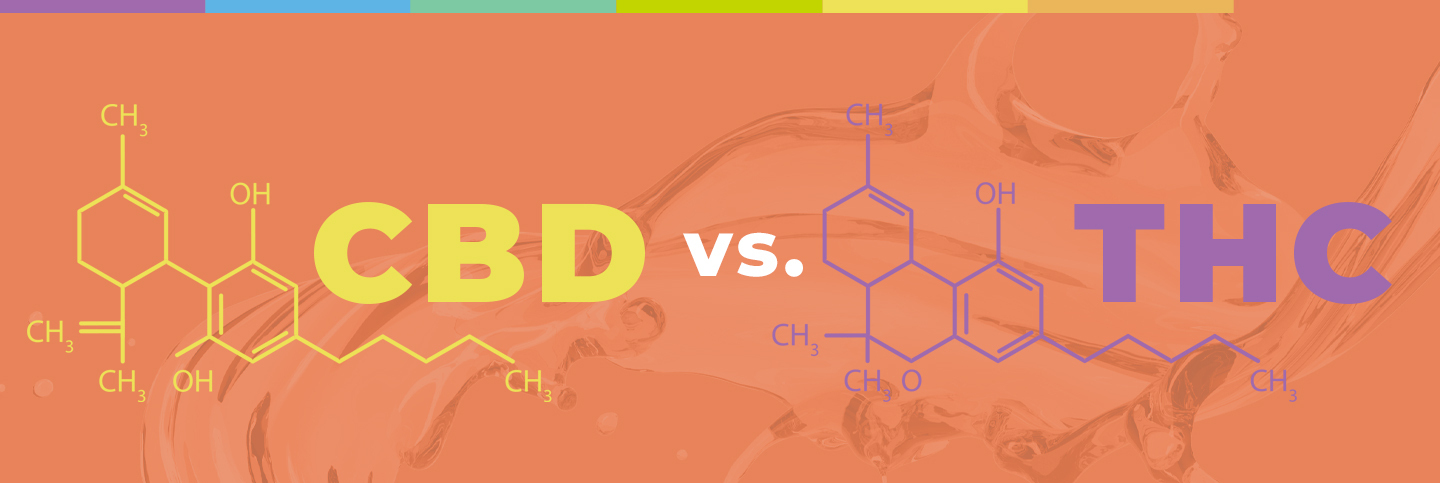
CBD has become a normal part of the self-care routine for millions. They use it to help relieve a wide variety of symptoms. While many Americans use THC for similar reasons, the two substances have distinct and important differences.
It’s common knowledge that CBD and THC are both derived from the Cannabis plant. Like THC, CBD is a type of compound known as a Cannabinoid. The chemical makeup of the two is remarkably similar, while small differences in the molecular arrangement account for the wide differences in their effects. THC is the chemical in Cannabis plants that makes people feel “high.” CBD, on the other hand, does not elicit the feeling of euphoria that THC is associated with.
The Cannabis plant is widely varied. Some strains are high in THC (up to 35%) and are cultivated for that purpose. We refer to that as Marijuana. On the other hand, many of the types grown for CBD are very low in THC (0.3% compared with 5-35% for plants that are grown for THC). Cannabis plants that are not cultivated for THC are called “Hemp.” (Fun Fact: in addition to its usage as a medicinal plant, the cannabis plant can be made into food, fuel and a versatile fiber! It’s been cultivated by humans for thousands of years.)
CBD vs THC: Usage & Legality
THC is often ingested via smoking flowers, though with proper preparation it can be vaped, eaten, or consumed as a drink. CBD can be smoked or vaped, though it is more popularly taken orally in a tincture. It can also be used as a topical cream, even a suppository.
Hemp cultivation was legalized in the United States in 2018. Cultivation of Marijuana plants that are high in THC is still federally illegal although some states have legalized it to varying degrees. CBD products are legal in all states to some degree. Some states prohibit or restrict CBD sales and production. In most states there are strict rules around THC content, sourcing, and how CBD products can be sold. For information on your state’s laws, you can check this site by NORML.
CBD users may test positive on drug tests and should be aware of that fact despite having very low concentrations of THC in their chosen products. “Full Spectrum” preparations generally contain small traces of THC, while “Isolate” products should not. However, we encourage you to check the lab analysis results of our products for more precise information.
CBD vs THC: Side Effects & Benefits
There can be side effects to usage of THC or CBD. For THC, the side effects include headaches, drowsiness, fatigue, dry mouth and eyes, dizziness, increased appetite, disorientation, hallucination, even nausea and vomiting. CBD is usually well-tolerated by consumers, although it has a few of the same possible side effects: Dry mouth, drowsiness, fatigue. Other noted side effects for CBD include diarrhea and reduced appetite. It’s known that CBD can cause issues with some medications (especially blood thinners) so ask your doctor before beginning to take CBD.
CBD products have been used to treat a wide variety of symptoms like: anxiety, insomnia, and chronic pain, among many others. However, CBD products cannot be marketed as a treatment for ailments, with the exception of Epidiolex, which has been FDA approved to treat seizures. There are hundreds of studies being created and conducted to show the effectiveness of CBD products for various ailments, however, the federal approval process is a lengthy one.
While we wait for the federal and state institutions to catch up, Physician Selected remains committed to providing the highest quality CBD products available.
